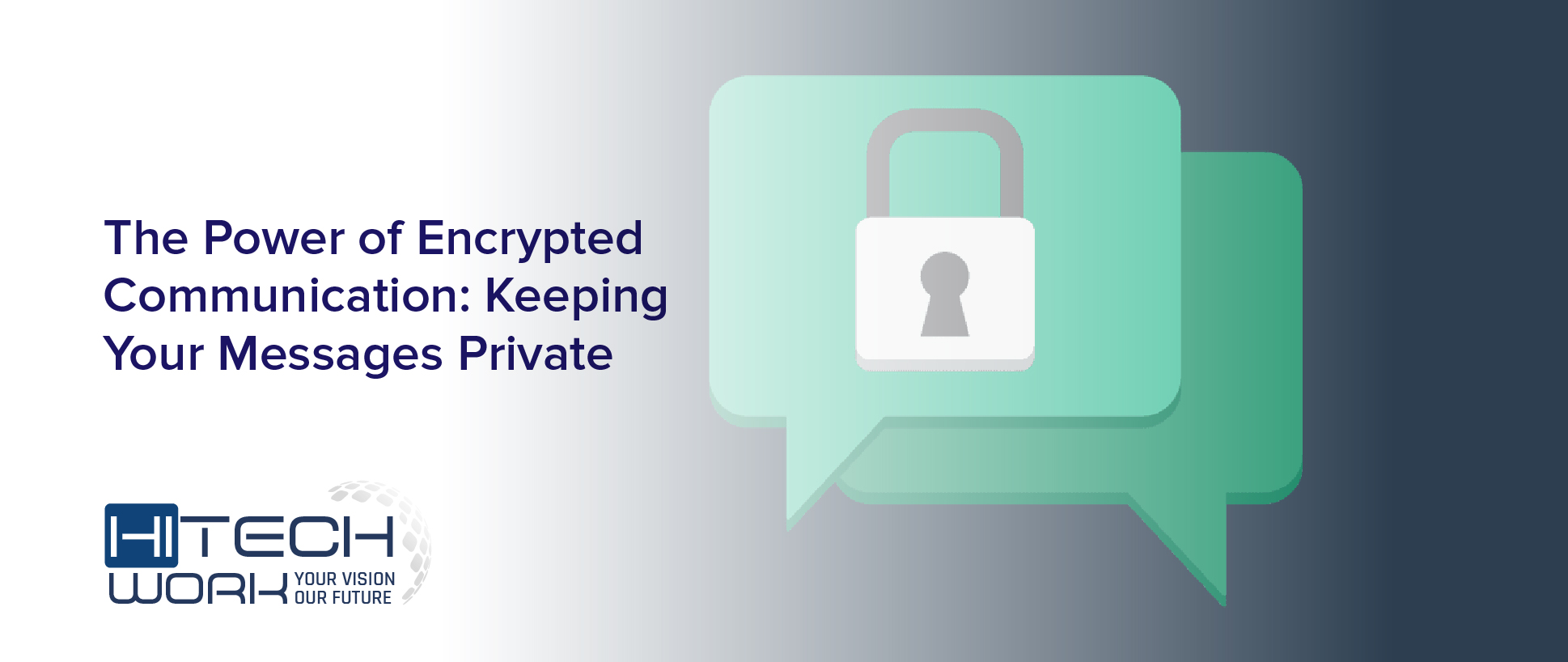Introduction
If you’re online communicating with your friends and family, you would assume your messages would be private. However, not all messaging apps and online communications are created equal. Some apps implement encryption by default, whereas others rely on users to complete some steps before their online communications are fully encrypted.
The information shared in your communications can reveal a lot about your personal life and the lives of those you are communicating with. You could compromise much of your confidential data if someone gained unauthorized access to your chats and messages. That is why it is necessary to take actionable steps to encrypt your online communications so they are inaccessible to malicious actors.
Encryption means that third parties cannot decipher or understand your data. We’ll go into all of that in more detail as we explore this guide. We’ll discuss how encryption works, why it is necessary for online communications, and which messaging apps have end-to-end encryption. So, if you’re ready, let’s begin.
What Is Encryption?
End-to-end encryption, essential when using messaging apps, helps protect you against malicious actors and other third parties from deciphering or interpreting your data. It is a method of secure communication that ensures that third parties cannot access your data when it’s transferred from one device or end system to another.
It prevents intermediaries and potential eavesdroppers from being able to decrypt or intercept the information that is getting transmitted. End-to-end encryption differs from other types because only the sender and receiver can decrypt and read the message. Popular apps like WhatsApp, Signal, Zoom, and Facebook use end-to-end encryption.
End-to-end encryption offers protection against prying eyes as it only gives power to the sender and receiver as they have the keys to decrypt messages. It also protects against tampering with encrypted messages. Any attempts to alter the messages would be known. Here’s how end-to-end encryption typically works:
- When the user sends a message, it gets encrypted on their device before transmission. The encryption is performed by using an encryption algorithm or cryptographic key.
- The encrypted message is then transmitted to the receiver or a server.
- When the message arrives at the receiver’s device, it is decrypted using a decryption key. Only the recipient with the corresponding key can decrypt and access the actual content.
- The encryption keys must be exchanged securely between the sender and the recipient without any risk of interception. It can be done through public key cryptography, where users have a public key for encryption and a private key for decryption.
Why Is End-To-End Encryption Important For Online Communications?
Encryption is taking information and turning it into something that cannot be understood or deciphered by anyone other than the intended recipient. We spend much time online sharing private and confidential information with others. If a cybercriminal or malicious actor gains access to the personal information that we share with others through messaging, it would have severe consequences. That is why it is essential to use encrypted messaging apps.
The type of encryption that is used varies between the different applications. End-to-end encryption offers the most privacy since the message’s contents are only known to the sender and the recipient. If a third party somehow intercepts the message, they would not be able to decipher it or figure out the contents of the message. With end-to-end encryption, the messages remain encrypted as they’re transmitted between the sender and the receiver. It maintains the confidentiality of your data.
End-to-end encryption gives users the comfort and freedom in choosing the recipients of their messages and the security that they can freely speak about anything they want without worrying about their messages getting intercepted, read, or heard by anyone else. To summarize, end-to-end encryption is essential because:
- It ensures that the sender and the intended recipient can access the content of their online communications. This level of privacy helps protect against malicious actors and unauthorized access.
- E2E encryption also helps protect data from getting intercepted during transmission. Without this encryption, the confidential information in your messages can be compromised and subject to data breaches, identity theft, and cyberattacks.
- In a digital age where mass surveillance has become more common than ever, E2E is an essential tool that helps protect against government surveillance, as well as hacking on communication platforms because even if the hacker can get a hold over your messages, they would not be able to understand or decipher it.
Signal vs. WhatsApp: Which Is Better For End-to-end Encryption?
Now that we know why End-to-end encryption is essential to protect your confidential data and ensure it is used let’s investigate two of the most popular apps that support end-to-end encryption. In the battle of Signal vs. WhatsApp, who comes out as the clear winner? Let’s find out.
Encryption
- Signal has a solid commitment to privacy and security. It uses end-to-end encryption for all communications, including text messages, voice, and video calls.
- WhatsApp also offers end-to-end encryption for messages and calls. However, since Facebook (now Meta Inc.) owns WhatsApp, there have been concerns regarding user privacy and the potential sharing of data between WhatsApp and Facebook.
Security Features
- Signal’s end-to-end encryption applies to all modes of communication. Signal also encrypts Metadata. Signal has privacy features that ensure that even Signal cannot see who is messaging whom. Passwords, fingerprints, and two-factor authentication make messaging more secure and private. It uses a default 4-digit passcode to encrypt local files.
- WhatsApp’s E2E features also apply to all modes of communication. It uses end-to-end encryption for messages, calls, videos, and images. However, WhatsApp doesn’t encrypt backups locally and on the cloud. It also doesn’t encrypt metadata. Although the metadata doesn’t reveal the content of your messages, it can disclose to authorities who you’re texting and the duration of texting.
Data Collection
- Although many messaging services can access your phone’s data, such as your name, contact details, and location, Signal only requires your phone number and nothing else.
- WhatsApp uses its servers to track messages that are forwarded and encrypted data. It also tracks how frequently you use the application and the time you spend talking to someone on the app.
Cross-Platform Support
- Signal is available on various platforms, including Windows, macOS, Linux, iOS, and Android. It has a web version you can use for browsers.
- WhatsApp and a web version for browsers are available on iOS and Android. It also has desktop applications for Windows and macOS.
Factors To Consider When Choosing Encrypted Communications
Here are some factors that you should consider:
- End-to-end encryption should be a feature on 1:1 messaging platforms because these are the platforms where most personal information gets shared between users.
- Fewer companies offer encrypted group messaging compared to end-to-end encryption for one-on-one messaging. One should be careful about sharing confidential or sensitive information in a group chat.
- It would help if you also opted for messaging apps that offer end-to-end encryption by default rather than having to take steps to enable the encryption process actively. It would save users the hassle of manually enabling encryption before participating in any communication.
Conclusion
Encrypted communication is necessary to keep your personal details and information private. Since we’re habitual in sharing personal messages with friends and family, we should also use encrypted platforms so that our confidential data doesn’t get into the wrong hands or get misused by malicious actors and other third parties.






